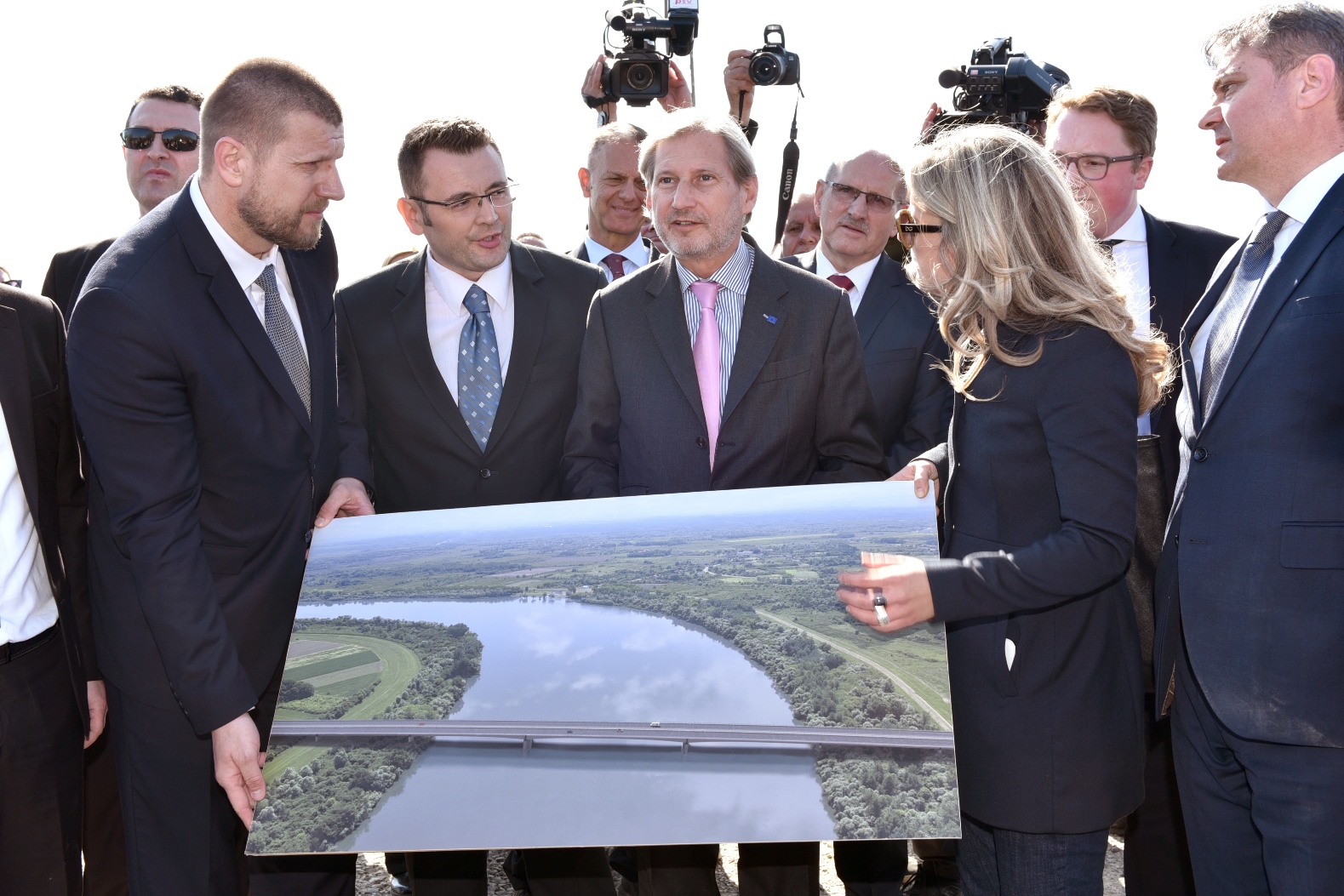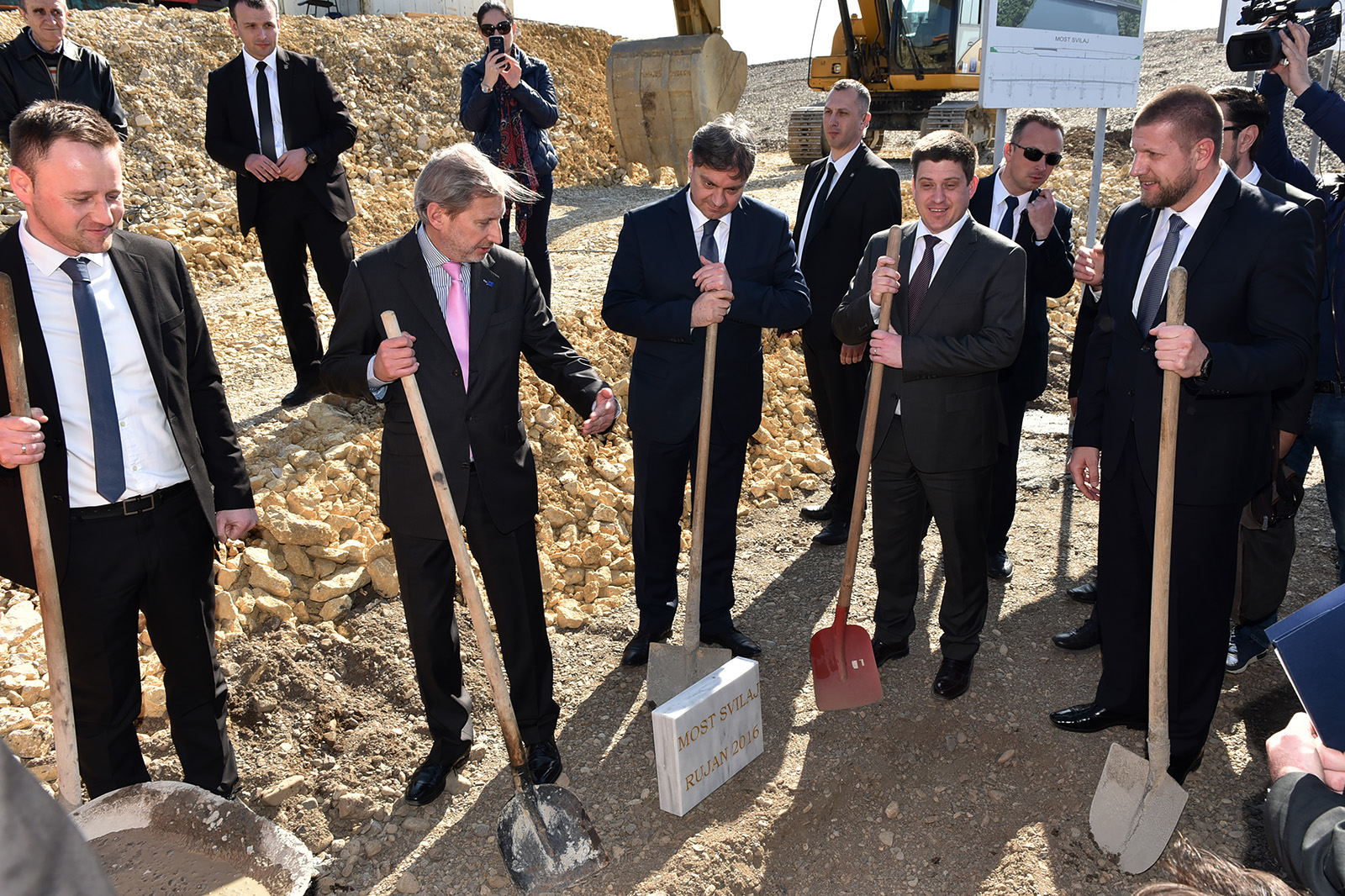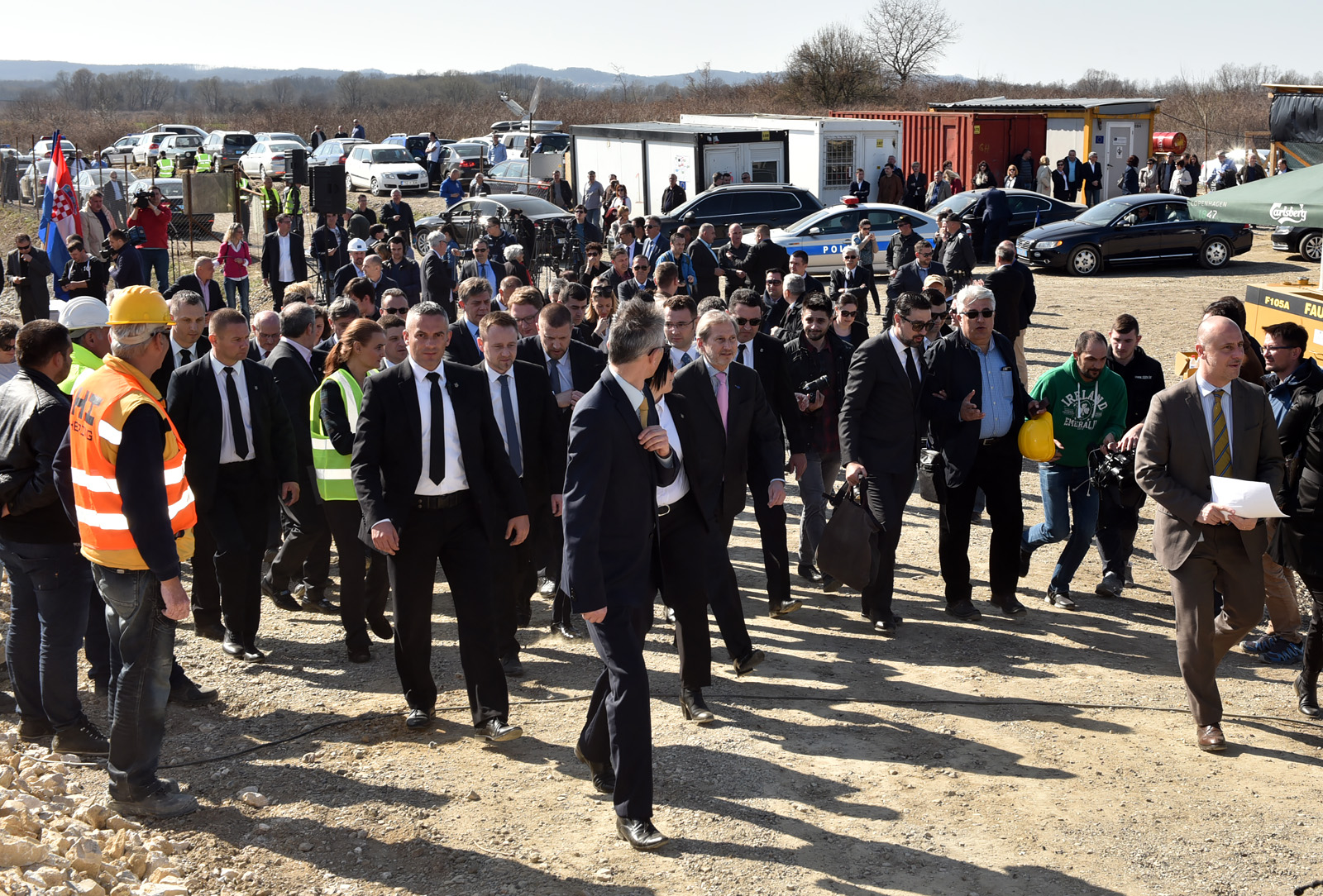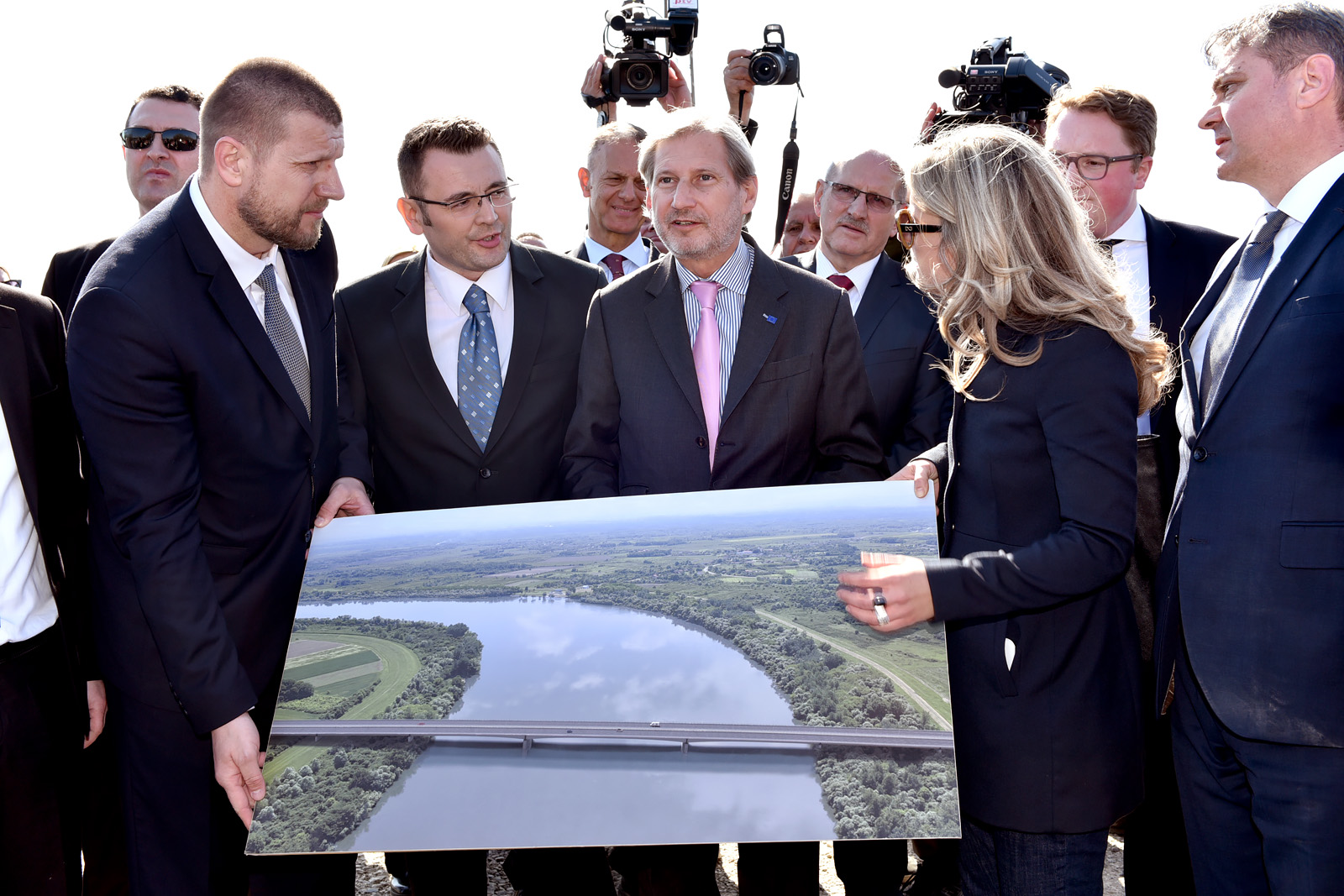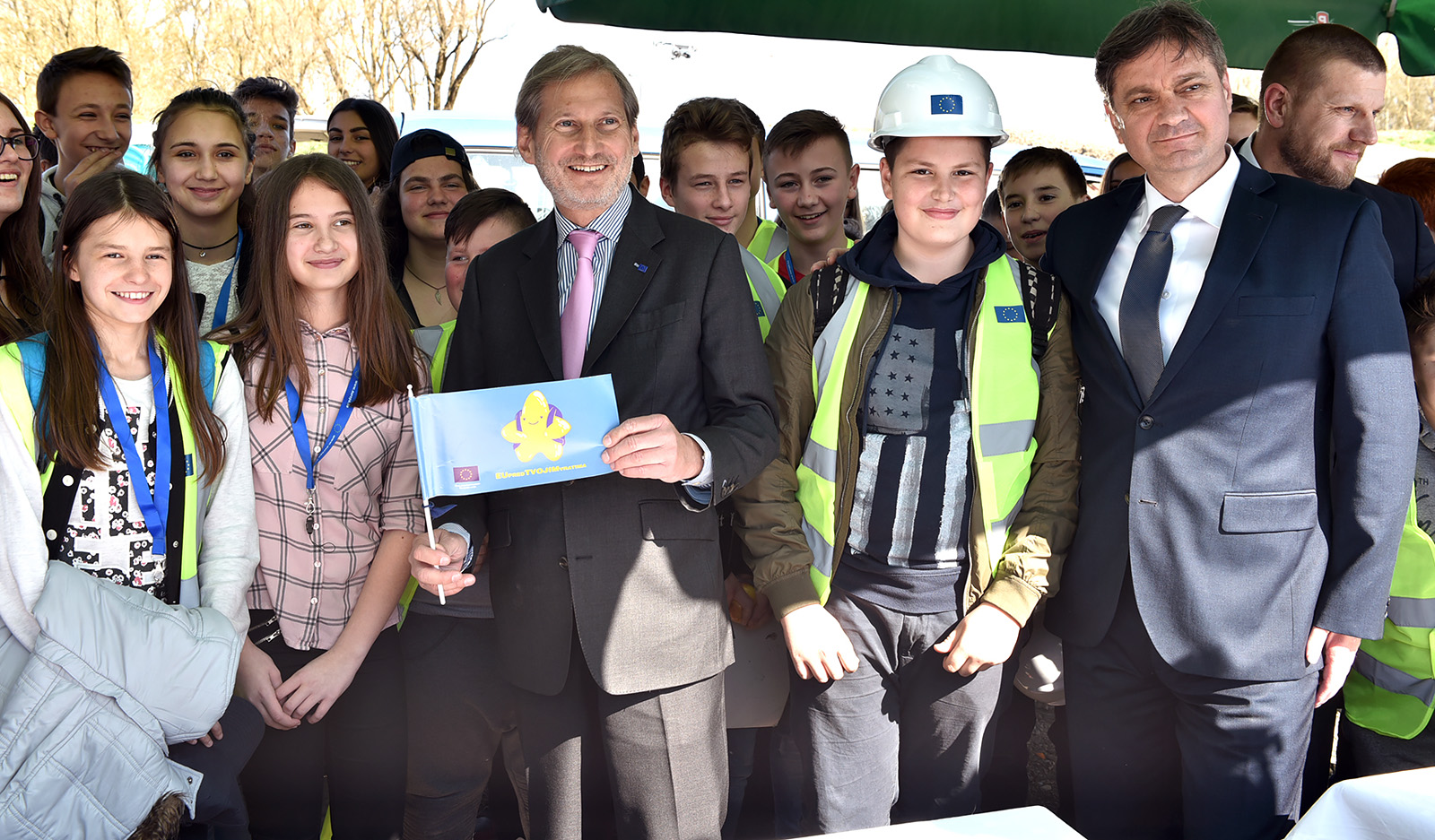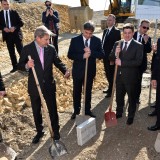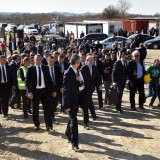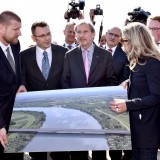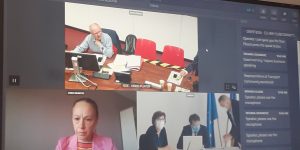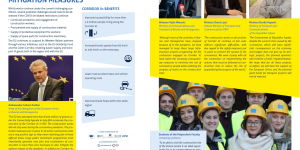Johannes Hahn, Commissioner for European Neighbourhood Policy and Enlargement Negotiations, attended today in Odzak (BiH) the ground-breaking ceremony at the construction site of the cross-border bridge over the Sava river between Bosnia and Herzegovina and Croatia, the first in a series of transport and energy projects that aim to improve infrastructure links across the Western Balkans. Commissioner Hahn was joined by the Chair of the Council of Ministers of BiH Dr Denis Zvizdic, Minister of Transport of BiH Ismir Jusko, Croatian Minister of Maritime Affairs, Transport and Infrastructure Oleg Butkovic, and other BiH and Croatian officials.
As part of the Connectivity Agenda, Bosnia and Herzegovina embarked on an ambitious motorway construction programme, including along Corridor Vc on the Mediterranean Core Network Corridor, in co-operation with its neighbours. This investment project concerns the construction of 10,7 km of state-of-the-art motorway, a cross-border bridge over the Sava river, and a cross-border facility on the Svilaj – Odzak section of Corridor Vc, and the European Union has committed around 90 million Euro of financial support for it (25 million Euro as a grant from the EU, combined with 45 million Euro loan from the European Investment Bank and 22 million Euro loan from the European Bank for Reconstruction and Development).
“The Svilaj bridge will connect Bosnia and Herzegovina and Croatia, and it brings the Western Balkans closer to the European Union“, said Commissioner Hahn. “Svilaj bridge is a tangible example of closer integration of the whole Western Balkans region in the context of our Connectivity Agenda. Our joint objective is to improve infrastructure links across the Western Balkans and between the region and the EU. Improved connectivity stimulates economic growth which, in turn, opens up more job opportunities. We are strengthening the countries’ backbone of competitiveness.”
Improving connectivity within the Western Balkans, as well as between the Western Balkans and EU, is a key factor for the economic development of the region. The Commission has made the connectivity agenda one of its highest priorities in this region, with the full support of the Western Balkans governments. Special emphasis is given on preparing and financing concrete regional infrastructure investment projects, but also on implementing technical standards and soft measures (e.g. simplifying border crossing procedures or unbundling utilities, and third party access to networks). The EU remains committed to providing up to 1 billion EUR for co-financing of the connectivity agenda over the period 2014-2020. In the past two years, the EU has provided around €300 million for 13 projects.
Background: Connectivity Agenda
Improving connectivity within the Western Balkans, as well as between the Western Balkans and the European Union, is a key factor for growth and jobs and will bring clear benefits for the region’s economies and citizens. The Western Balkans Six (WB6) has made the connectivity agenda one of its highest priorities, with a special emphasis on the preparation and financing of concrete regional infrastructure investment projects, but also on the implementation of technical standards and soft measures such as aligning/simplifying border crossing procedures, railway reforms, information systems, road safety and maintenance schemes, unbundling and third party access.
The National Investment Committees (NICs) are responsible for defining and managing the prioritised Single Project Pipelines, and serve as a basis for programming of all available financing sources (including national and other donors). The European Commission will, via the Western Balkans Investment Framework (WBIF), co-finance mature energy projects from the PECIs list (Projects of the Energy Community Interest) and mature transport projects from the TEN-T (Trans-European Transport) Core Network, together with loans from the international financial institutions.
Useful documents:

